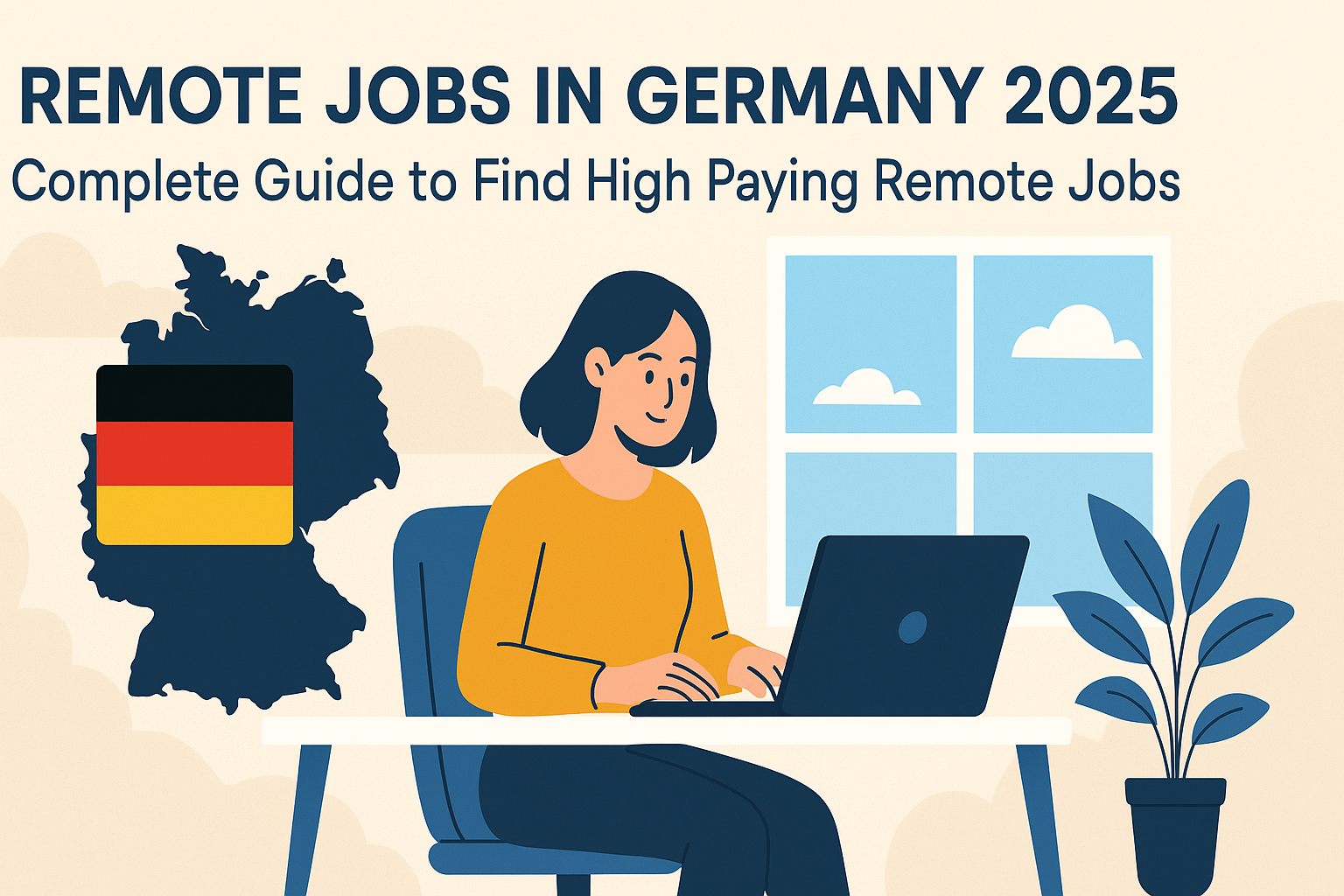Before the COVID-19 pandemic, remote jobs in Germany were rare. The work culture favored on-site presence, and remote or hybrid setups were hardly encouraged. If you needed to work from home occasionally, it had to be pre-approved.
However, COVID-19 drastically changed this landscape. Today, many companies have adopted hybrid or fully remote models, and flexibility has become a key benefit that candidates look for—right alongside salary.
Top Sectors Offering Remote Jobs in Germany
Remote job opportunities are booming across many industries, especially in non-field roles. Here are the main sectors hiring:
Tech & IT: Software Developers, QA Engineers, Data Scientists, Cybersecurity Experts
Marketing: Digital Marketers, Content Strategists, SEO Specialists
Product & Project Management: Product Managers, Scrum Masters, Project Coordinators
Business & Admin: HR professionals, Recruiters, Finance Executives
Customer Support & Design: Social Media Managers, Video Editors, Technical Support
Essentially, any job that doesn’t require on-site physical presence has the potential to go remote.
Where to Find Remote Jobs in Germany (Best Websites)
Here are the top platforms to search for remote opportunities in Germany:
Arbeitnow – Offers listings for full-time and remote jobs in Germany.
We Work Remotely – Global remote job board with listings from German companies.
EuropeRemotely – Focuses on European-based remote jobs.
Remote OK – Global listings including salary details.
Remote.co – Find jobs across IT, marketing, support, and more.
FlexJobs – Verified remote and flexible job listings.
Jobspresso – Best for tech, marketing, and support roles.
Working Nomads – Great for digital nomads looking to work remotely.
Average Salaries for Remote Jobs in Germany
Here’s a breakdown of average annual gross salaries (in Euros) for remote positions in Germany:
| Role | Junior/Mid-Level Salary (€) |
|---|---|
| Software Developer | 55,000 – 70,000 |
| Data Analyst | 50,000 – 60,000 |
| IT Specialist | 40,000 – 55,000 |
| Marketing & Sales | 50,000 – 60,000 |
| Freelance Content Creators | 40,000 – 50,000 |
| Digital Marketers & SEO | 40,000 – 50,000 |
💡 Note: Salaries vary based on experience, company size, and skill sets.
For a deeper dive, check this detailed salary guide by Glassdoor Germany.
Benefits of Working Remotely in Germany
Working remotely doesn’t mean you miss out on company perks. Here are common benefits provided by German employers:
✅ Performance Bonuses
Most companies offer annual performance-based bonuses ranging from 5% to 25% of your gross salary.
✅ Home Office Setup Support
You may receive reimbursements up to €1,500 for setting up your home workspace—desks, chairs, monitors, etc.
✅ Provided Equipment
Laptops, headphones, keyboards, and other essential tools are usually provided.
✅ Health Insurance & Pension
With a German contract, you’ll typically get contributions toward health insurance and pension plans.
✅ Learning & Development
Many companies offer free professional courses or language training (like German courses). Ask your HR for options.
✅ Team Retreats
Even in remote setups, occasional team meetups or retreats are common and encouraged.
Can You Work from Your Home Country?
This depends on your contract type:
German Contract:
You’re expected to work within Germany. Some companies may allow short-term stays abroad (a few weeks per year), but this varies. Always confirm with HR.Local Country Contract:
If you have a contract in your home country (e.g., India), and the company operates under local law, you can continue working from your country without relocating to Germany.
Tip: Always discuss remote work location policies before signing the contract.
Final Tips: Boost Your Chances of Getting Hired Remotely
To land a remote job in Germany, you need a perfect CV tailored for the German market. If you’re not getting interview calls, your CV might be the issue.
📘 Try this 1-hour crash course on crafting a job-winning CV for Germany. It covers formatting, keywords, and local expectations—everything you need to increase your chances of landing interviews.
Conclusion
The demand for remote jobs in Germany is real—and growing. Whether you’re a techie, marketer, or HR professional, there’s a remote opportunity waiting for you.
Keep these tips in mind, explore the websites listed above, and make sure your CV stands out.
✅ Like what I’m doing? Hit the like button and subscribe to stay updated on job tips, visa info, and remote work trends in Germany.
Stay healthy, stay happy, and good luck with your job search!




